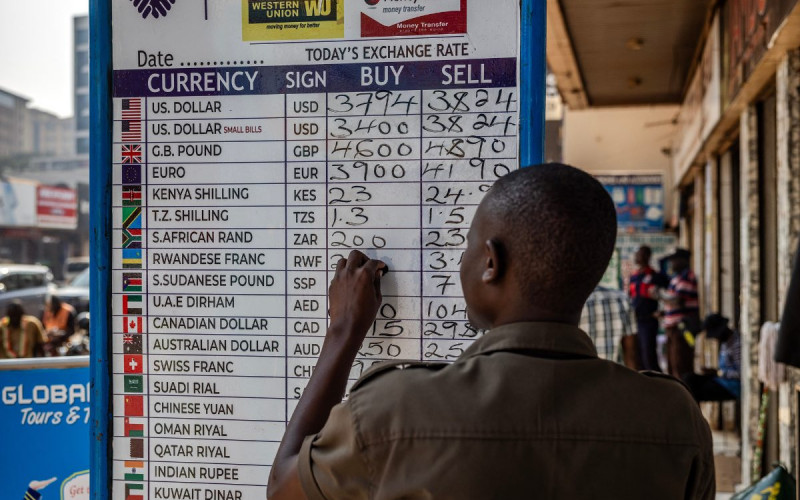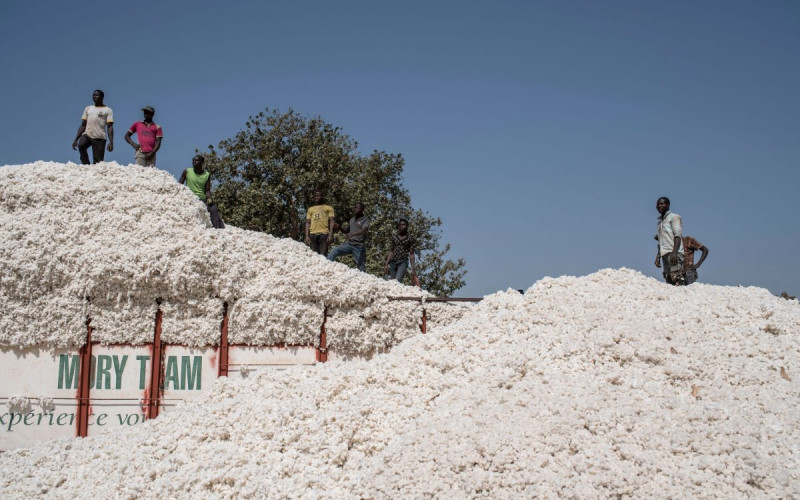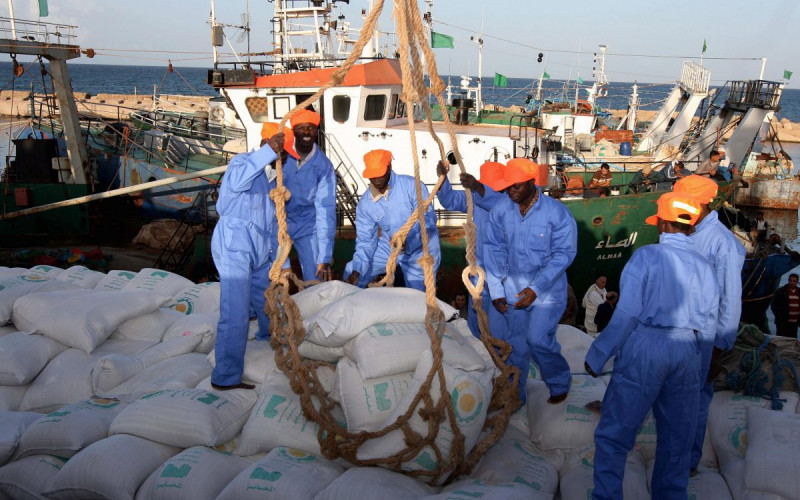Nepad does note that Africa must end conflicts and develop more effective institutions for doing so; improve governance; open foreign markets; cut Africa’s debt burden; and radically improve education, health, and infrastructure. In a world of unlimited funding, Africa could work on all those areas simultaneously.
But Africa does not have unlimited funds. Donors presently give only about $14 billion a year in aid to the continent, according to the World Bank. Africans say they need $64 billion in investments to meet their growth targets.
Assuming such shortfalls are a permanent condition, how should Africa decide among the many worthwhile needs? If Africa simply pushes equally on all its priorities, failing to fund any one sector sufficiently, it will continue making progress at the same glacial pace of the past 40 years. The rest of the world, meanwhile, will speed further ahead and the continent’s marginalisation will worsen.
Although there is progress in individual African countries (growth rates over 5% were recorded in 14 African countries in 2002, according to the World Bank), the UN Development Programme’s 2003 Human Development Report is unequivocal about the continent’s overall prospects. ‘Unless things improve, it will take Sub-Saharan Africa until 2129 to achieve universal primary education, until 2147 to halve extreme poverty and until 2165 to cut child mortality by two-thirds. Economies have not grown, half of Africans live in extreme poverty and one-third in hunger, and one-sixth of children die before age five – the same as about a decade ago.’
The fundamental problem posed by Nepad for national governments and aid donors alike is how to choose between competing priorities and concentrate on those few that will have the greatest positive effects early on. Universal primary education, for example, may be desirable, even moral, but it won’t necessarily have an economic payoff for a generation. Better roads and ports and changes in governance, on the other hand, can have immediate economic benefits.
Diverse Business, Common Concerns
Compiling a list of business priorities is no easy task. Businesses come small and large, informal and formal. African owners serving local markets have different problems than international investors. Businesses involved in different stages of production – such as miners and metal manufacturers, yarn spinners and garment makers – will have different views on particular trade-policy questions.
Information about the real dynamics of business decision-making in Africa has historically been difficult to find, but recently there has been a quantum leap in the breadth and depth of business research. ‘More African countries are being added to the big global surveys and indices. There is more and more information on business in Africa out there now than, say, five years ago,’ said Susan Lawson of the Johannesburg-based market research firm Markinor.
In considering the difficult question of setting priorities, eAfrica looked in two directions. In November and December, eAfrica conducted the African Priorities Survey of Business Organisations, an extensive discussion with 56 major local business organisations in 31 countries in Africa. In addition, we scrutinised a slate of new global and regional surveys that provide important new insights into both the dynamics of business growth and the things that impede Africa’s economic advancement (See box, page 6).
Despite the differences among businesses and nations, these surveys reach remarkably consistent conclusions over time and across countries. They conclude that the single biggest priority for Africa must be to extinguish the ongoing conflicts on the continent and to entrench political stability. While wars rage, economies don’t grow.
A survey entitled African Elite Perspectives on AU and Nepad, released by South African researchers Hennie Kotze and Carly Steyn in January 2004, asked participants to rate the most important obstacles affecting Africa. All seven countries polled ranked political instability among their top three concerns. Asked what they thought the top priorities of the African Union should be, participants in all seven countries put peace in Africa as the top goal.
As the Nepad document itself notes, peace is the sine qua non of development. On this score, Africa is making some progress in Burundi, DRC, Sierra Leone and Sudan. But there is a huge difference between absence of war and a thriving economy. (See opinion, page 13.)
We should note that three key issues of major concern to business were not addressed in this report because they require more specialised investigation: trade strategy, debt relief, and management of and communication about HIV/Aids. These topics were mentioned frequently in interviews, however, and cannot be left out of any national or continental economic strategy.
Infrastructure: Get The Basics Right
All the surveys we considered strongly emphasise the need to improve Africa’s crumbling roads, derelict railways and inefficient ports and airports. A critical observation arises again and again: The old World Bank model of development favouring large-scale projects hasn’t worked. What’s needed is something far less grand: regular maintenance of the basic transport, electrical and telecommunications services already built.
As one Chamber of Commerce executive told eAfrica: ‘It is impossible to have circulation of products with broken roads and bridges and with a lack of electricity.’ Another said: ‘The state of the roads in the rural areas is poor, but our biggest problem is electricity blackouts. Last year a study through our organisation found that there had been a 30% loss in work hours throughout the country due to power cuts.’
Of the business organisations that we spoke to, 51% reported electricity failures at least once a week, 30.4% had failures a few times a week and 1 in 8 reported daily power blackouts.‘In Sub-Saharan Africa, investment in telecoms has gone well, particularly in the huge cellphone boom,’ said Reg Rumney, head of the Johannesburg-based Business Map, which conducts research on business conditions in Africa. ‘Energy generation and exploration has progressed fairly well. Butt transport – maintaining our roads, ports and railways – has been dismal.’
That’s not to say phones are not a key problem. It takes an average of five years on a waiting list to get a fixed line telephone in African countries, according to the International Telecommunications Union. Peak-time telephone rates from South Africa to fixed lines in the 31 countries eAfrica examined, for example, averaged about $1 per minute and were as high as $2 per minute. Calls of similar length from South Africa to either Britain or the US, in comparison, cost less than $.50 per minute.
Rails are often cheaper than road transport, but business leaders said chaotic management, losses of stock in transit and uncertain scheduling contribute to the ongoing shift toward road transport. Despite the continent’s growing dependence on trucks and tarmac, however, roads both major and minor suffer from costly neglect (See story, page 16). One World Bank study found that charges for international freight were 2.6 times higher than in other regions of the world; the cost of moving goods from Abidjan to Addis Ababa is 3.5 times the cost of moving goods from Abidjan to Tokyo.
Infrastructure is expensive, but failure to maintain it costs far more. Maintenance has routinely been a condition of aid grants and loans, but African leaders have tended to ignore it, favouring current consumption over the care for current assets. We have to ask why. As far back as 1994, the World Bank observed that the ‘timely maintenance of $12 billion would have saved road reconstruction costs of $45 billion in Africa in the past decade.’
If Africa is to start a virtuous cycle of growth, it must shift away from consumption and focus more attention on its vital transport and utility infrastructure.
End the Credit Crunch
Difficulty in getting credit and high interest rates were repeatedly cited as one of the greatest inhibitors to starting or operating a business in Africa in our discussions with entrepreneurial organisations. Without money to establish or grow firms, the problems of un-employment, growth and poverty cannot be addressed.
Many business organisations considered banks overly averse to risk, more inclined to impose onerous collateral requirements than back new ventures. Small businesses, in particular, were unable to meet or unwilling to accede to the formal procedures (e.g. a year of audited accounts) required for banks to extend credit, and have had to resort to their own resources and networks to raise capital.
‘The most difficult factor is access to credit,’ explained one exporters’ association in West Africa. ‘Large- and medium-sized businesses can secure credit more easily, but 90% of our economy is made up of micro-businesses that really struggle to get credit.’
A variety of easy-credit schemes – managed sub-inflation lending rates in Zimbabwe; government loans to small business in Botswana and South Africa; unsecured agricultural loan programmes nearly everywhere on the continent – have failed as funds flowed outward but were never repaid. These approaches have not solved the problem because unwillingness to provide credit is intimately tied to a host of interwoven failures of governance and support institutions.
No Growth Without Rule of Law
The credit crunch will not be solved unless governments address the rule of law. While Nepad has focused on big ideas and tabled a list of infrastructure mega-projects, the interviews conducted by eAfrica and the research surveys considered in this article all stress one element that should be seen as potential good news: Africa may not be able to control such things as trade talks or debt relief, but its governments do control a cluster of institutions that, if improved, could transform the African business environment at modest cost without waiting for outside aid or concessions.
The systems for enforcing contracts, collecting debts and dealing with the state are essential to economic growth and industrialisation. All the major studies cite severe deficiencies in court systems; ambiguity over property rights; cumbersome bureaucratic procedures; and inability to enforce contracts. These problems are not unique to Africa, but as the most marginalised region in the world, Africa has far less ability to absorb their impact.
‘What a lot of people haven’t highlighted [in Nepad] is the rule of law,’ said Strive Masiyiwa, head of Econet Wireless mobile phone company, which has operations in six African countries as well as in the UK, France and New Zealand. ‘I’m not talking about the obvious thuggery of dysfunctional regimes but the day-to-day effectiveness of the legal system. The people in power don’t consider themselves subject to the law. The courts don’t work. The reality is there are only about five countries in the sub-continent where the courts work to protect legal rights.’
A business organisation in one small southern African country put it this way to eAfrica researchers: ‘On paper, it looks like our government is trying to fight corruption. But, in fact, its another story. There are cases relating to corruption that are just hanging in court. For example, six cabinet ministers have corruption charges against them and as yet they have not been tried. The problem, as I see it, is that the state prosecutor is subject to influence from a higher authority. Another problem is that a new law allows the office of the president the final say on tenders for contracts. The law was supposed to curb corruption, but from my personal experience it doesn’t. Contracts are turned down for rather dubious reasons by people who know nothing about either the process or tender.’
Such conclusions were echoed by UNIDO, which called for transparency in the legal system; by the World Economic Forum, which rated the quality of public institutions as one of the pillars of growth; by the Commonwealth Business Environment Survey; and by the the World Bank’s Doing Business in 2004 study.
Doing Business in 2004, the most detailed examination of government institutions affecting business, found many small, but easily fixable problems contribute greatly to economic stagnation. Take courts, for example. The ability to swiftly and fairly settle commercial disputes is missing in much of Africa, which not only allows white-collar crime to go unpunished but also scares off foreign investors who fear that if a dispute arises there will be no way to enforce business contracts.
The court problem in turn spawns other problems. The harder it is to collect debts through legal processes, the more banks insist on high amounts of collateral, which in turn exacerbates the problem of severe credit shortages.
Doing Business found that the cost of enforcing a simple commercial contract was 1% of the disputed amount in Australia, Canada and the United Kingdom, but more than 100% in Burkina Faso, Madagascar, Malawi, Dominican Republic, Indonesia and the Philippines. The report also found that it took more than 500 days to resolve a payment dispute in eight of 31 African countries evaluated. It costs almost 60% of average annual per capita income in sub-Saharan Africa to resolve a payment dispute, compared to just 7% in the developed world.
In the Global Competitiveness Report, Daniel Kaufmann of the World Bank Institute noted that such failures to enforce the rule of law and protect contracts and creditors has dramatic economic consequences across the developing world. ‘National governance matters,’ he said. ‘A country that significantly improves key governance dimensions such as the rule of law, corruption, the regulatory regime and voice and democratic accountability can expect in the long run a dramatic increase in its per capita incomes and in other social dimensions. Specifically, if, for instance, the quality of rule of law were to improve by one standard deviation from, say, the current relatively low level of Ukraine to the “middling” level of South Africa, a four-fold increase in per capita incomes can be expected in the long run.’
Not unrelated is that old chestnut red tape. Doing Business in 2004 interviewed entrepreneurs around the world and found a very direct relationship between cumber-some regulation and lower productivity. It made three critical observations:
There is a strong relationship between the amount of employment-market regulation and the percentage of the economy in the informal sector.
The countries that regulate most have the least enforcement capacity and the fewest checks and balances to ensure regulatory discretion is not used to exact bribes.
There is a strong relationship between the number of procedures required to register a business and the amount of corruption.
The primary corrosive
Failure to consistently enforce the law, and lack of transparency in tendering, issuing permits, making tax assessments and adjudicating disputes, enables corruption to flourish.
The real impact of graft on an economy is difficult to quantify because often the only players aware of corrupt transactions are those involved. But recent research is shedding light on
just how damaging corruption is, particularly in resource-starved economies that cannot afford for substantial portions of revenue to be diverted to a tiny political class.
Every study consulted in this report, as well as eAfrica’s own research, concluded that corruption is one of the top issues holding Africa back. For example:
Across Africa, 52% of business organisations told eAfrica that it would be necessary to pay bribes to open a business, with 1 in 7 reporting that bribes would have to be paid more than twice.
In African Elite Perspectives on AU and Nepad, respondents in all countries except Senegal said fighting corruption should be a top-three AU goal (Senegal ranked it fourth) behind encouraging trade.
The World Economic Forum noted that ‘the enterprises from developing and transition economies included in this year’s survey single out corruption and excessive bureaucracy among the top constraints to their business operations, while respondent firms from the OECD single out excessive bureaucracy and the tax regime.
Many African countries are taking some steps to tackle graft. But there are serious doubts about the effectiveness of the measures as well as the depth of their political will to fight corruption. In some countries, business leaders implicated their heads of state, members of parliament and even the police and anti-corruption agencies as perpetrators.
‘The big difference between Africa and other societies, which admittedly have corruption, is that here it is so deep and people are so greedy that it threatens to destroy the entire economy,’ said Zimbabwean economist John Robertson. ‘Enron did a lot of damage, but did not send the US economy tumbling. I often use the analogy of corruption as parasites, like ticks on a dog. In many parts of Africa, the ticks have become bigger than the dog. African civil servants are not answerable to anyone, and their jobs are an opportunity to grab as much as they can. It will take years before anyone bothers to trace the evidence.’






